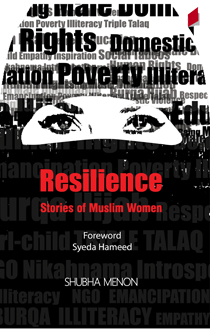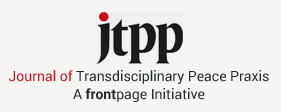Resilience: Stories of Muslim Women

- Design and Engineering: Sustainability, Innovation and Production (e-Book)
- A New Perspective in Social Sciences (e-Book)
- Employment and Social Protection of Adults with Disability: Selected Papers (e-Book)
- A New Perspective in Social Sciences
- Employment and Social Protection of Adults with Disability: Selected Papers
- Calcutta High Court: 68 Years Digest of Important Labour Cases [1950-2018]
- Resilience: Stories of Muslim Women
- Intimate Tussles
- A Critical Review of Social Sciences: Contemporary Issues
Binding:PaperbackSize: 140x215 mm
Pages: 148Year:
Resilience: Stories of Muslim Women
The chronicle illustrates that no matter whatever be the economic impediment or social taboo, given the means and empathy, women can soar to success. The critique chronicles the success stories of women in Nizamuddin Basti, Delhi, who were mostly school dropouts or had not studied at all.
In early 1980s, social activist Shabnam Hashmi came to Delhi from the erstwhile Soviet Union during her summer break from college. At the behest of a friend, she started teaching the Basti girls at a local adult education centre. But she soon realised that the centre didn’t want to go beyond basic literacy. Shabnam found the girls had lot more potential, and decided to stay back. And thus Seher Adult Education Centre came into existence.
Seher, however, started its journey on a bumpy road; coming from economically deprived families where even two square meals a day was a luxury at times, the girls had to struggle against severe hostility from Basti residents for whom Muslim girls going to study was anti-Islam.
Yet, the girls refused to give up, going on not only to clear public examinations but also inspiring and motivating future generations. These are stories of girls like Farida, who was made to wear a burqa at 9, married off at 13, abandoned with two children at 15, today runs an independent organisation; Ayesha, who not only fought for her own education but brought up her son to be an MBA and her daughter, a Master in Science; Mussarrat, whose grandmother kept her locked at home, now works for an international NGO.
Shubha Menon is a former copywriter who dropped ‘copy’ and became a writer. Resilience: Stories of Muslim Women is her second book; her debut, The Second Coming (HarperCollins, 2014) has made a mark in the genre of romantic fiction.
Dr Syeda Hameed is a social and women’s rights activist, writer and educationist who served the Maulana Azad National Urdu University as its chancellor, Planning Commission of India and National Commission for Women as a member. She was awarded Padma Shri, in 2007, for her contributions to Indian society.




